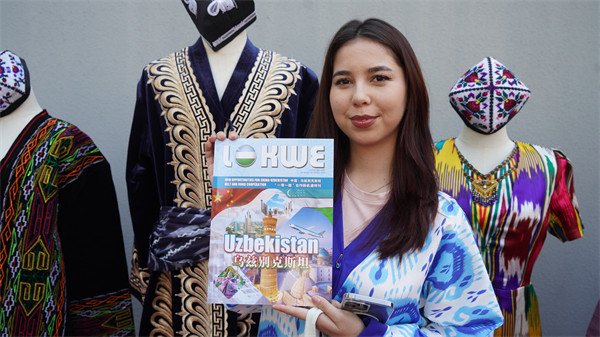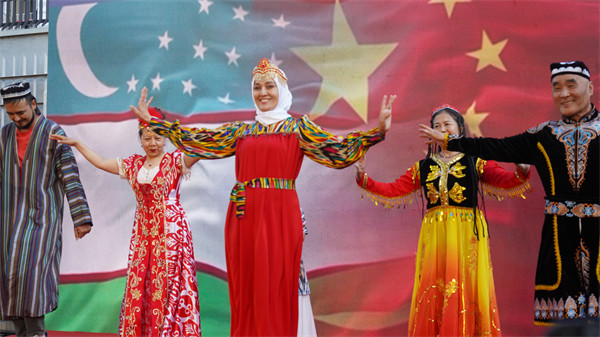Uzbekistan builds stronger ties with China through tourism


On May 14, an event showcasing Uzbekistan's tourism and cultural potential was held in Beijing. Organized by the Embassy of the Republic of Uzbekistan in China, the event attracted over 300 guests from various sectors, including representatives from Chinese government ministries, leading tourism companies, cultural institutions, media outlets, and foreign diplomatic missions in China.
The event highlighted Uzbekistan's welcoming policies for Chinese tourists. Bobir Yakhyaev, consul general of the Uzbek Embassy, outlined the significant reforms Uzbekistan has implemented in its tourism sector in recent years.
He announced that a bilateral visa-free agreement between China and Uzbekistan has been signed. Starting June 1, citizens of both countries will be able to travel visa-free for up to 30 days — an important step toward deepening people-to-people exchanges.
The year 2025 is designated as Uzbekistan Tourism Year in China. As part of this initiative, a series of cultural events are planned across China, including in Chongqing, Henan, Hainan, and Xinjiang.
In his speech, Yakhyaev noted that as key hubs along the ancient Silk Road, Uzbekistan and China have a shared history of exchange among merchants, pilgrims, artisans, and scholars — connections that continue to inspire strong cooperation today.

Youth momentum
At the event, Zang Hongyan, president of Beijing Haina Silk Road Cultural Development Co., Ltd., recounted her personal experiences in Uzbekistan. With more than a decade of experience in educational exchange programs, Zang emphasized the vital role of young people in Uzbekistan — not only as future nation-builders but also as a dynamic force driving bilateral exchanges.
According to the embassy, young people make up 60 percent of Uzbekistan's population, with more than 600,000 entering the labor market annually — a number expected to reach 1 million by 2030.
"Uzbek youth have a strong and growing interest in China," Zang said. "We're actively promoting youth exchange programs and inviting more Uzbek students to visit China."
According to Zang, the company plans to host a group of Uzbek university students this summer for short-term programs at Chinese universities, including Harbin Institute of Technology in Heilongjiang province and Lanzhou University in Gansu province. As soon as registration opened, more than 100 students signed up immediately.
"Uzbek youth who have visited China are truly impressed by its history, technology, and culture," Zang said. "They are particularly enthusiastic about China's advances in AI and new energy vehicles, with brands like BYD and Li Auto being particularly popular. China has many outstanding entrepreneurs, which is also something they are eager to learn from."
Sabina Baikuvatova, 23, is one of the many young people actively participating in China-Uzbekistan exchanges. She works as the chief sales manager for a major travel company in Uzbekistan.
On her first visit to China, she was struck by the country's rapid modernization. During her three-week trip, she traveled to several cities by high-speed train and eagerly connected with professionals in China's tourism industry.
"China is the future — I truly believe this," she said. "We must strengthen our ties and business exchanges with China."
Baikuvatova also plans to use Chinese social media platforms such as Weibo, Douyin (Chinese version of TikTok), and Xiaohongshu (RedNote) to promote Uzbek culture, cuisine, and tourism.
"I want to recommend our historical landmarks to my Chinese friends," she said. "Samarkand is a city of timeless beauty — every corner tells a story of grandeur and artistry. Khiva is like a living museum; wandering through the Itchan Kala fortress reveals the beauty of its mosques."
"Here in China, I see both countries' modern appearances with historic hearts."

































